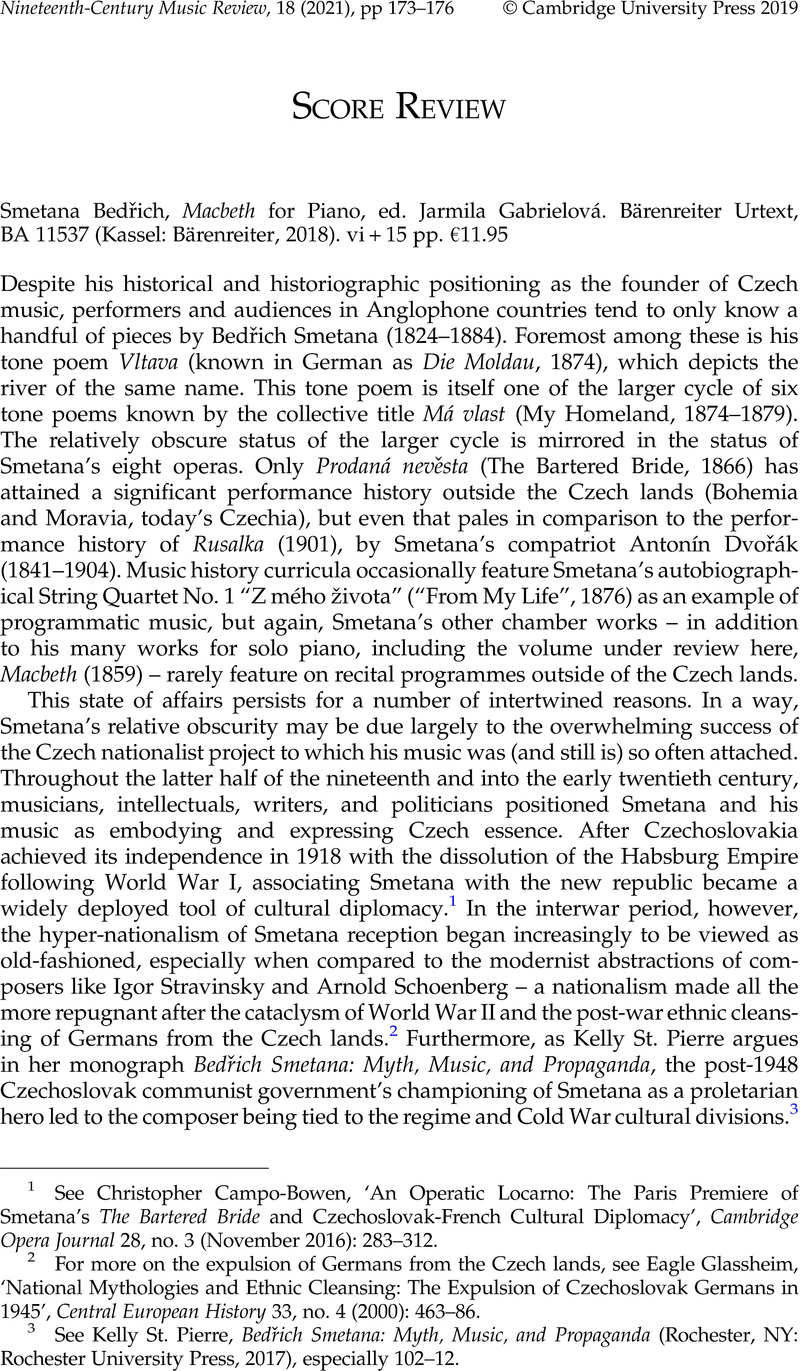No CrossRef data available.
Published online by Cambridge University Press: 20 August 2019

1 See Campo-Bowen, Christopher, ‘An Operatic Locarno: The Paris Premiere of Smetana's The Bartered Bride and Czechoslovak-French Cultural Diplomacy’, Cambridge Opera Journal 28, no. 3 (November 2016): 283–312CrossRefGoogle Scholar.
2 For more on the expulsion of Germans from the Czech lands, see Glassheim, Eagle, ‘National Mythologies and Ethnic Cleansing: The Expulsion of Czechoslovak Germans in 1945’, Central European History 33, no. 4 (2000): 463–86CrossRefGoogle Scholar.
3 See Pierre, Kelly St., Bedřich Smetana: Myth, Music, and Propaganda (Rochester, NY: Rochester University Press, 2017), especially 102–12Google Scholar.
4 For a thorough discussion along these lines that informs my writing here, see Taruskin, Richard, The Oxford History of Western Music, vol. 3 (Oxford: Oxford University Press, 2005), 448–52Google Scholar.
5 See St. Pierre, Bedřich Smetana, 14.
6 The piece's full title is Macbeth. Skica k sceně Shakespearových: Macbeth a čarodejnice (the second sentence was a later addition). Technically, this is grammatically incorrect in Czech, and would read literally as ‘Macbeth. Sketch for a scene of the Shakespeares: Macbeth and the witches’. The piece is occasionally referred to as Macbeth and the Witches, but the present edition opts for only Macbeth as the title. Despite his nationalist credentials, Smetana's native language was German, not Czech, and he struggled with the latter's written form throughout his life.
7 See Smetana, Bedřich, Macbeth, ed. Gabrielová, Jarmila (New York: Bärenreiter, 2018), ivGoogle Scholar.
8 See Smetana, Macbeth, v.
9 See Taruskin, The Oxford History of Western Music, vol. 3, 446.